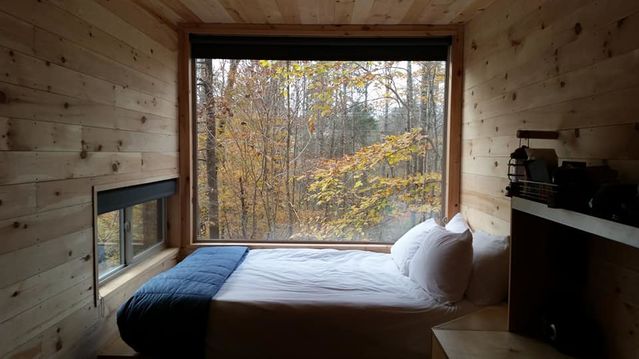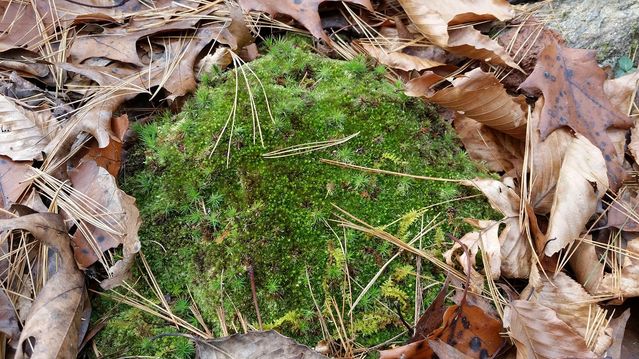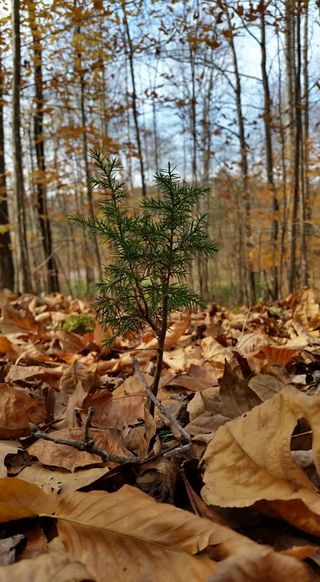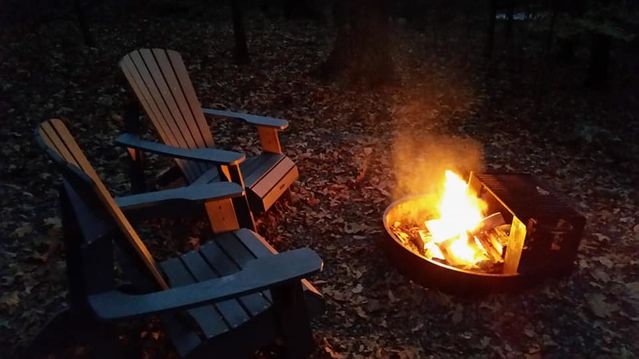Relationships
Shenandoah Diary
Getting away from your life can help you come home to the world.
Posted December 13, 2019

It is late November. I write this from a tiny stripped-down cabin on the edge of Shenandoah National Park which serves as my hermitage for a few nights. I came here as a getaway: to get away from my life in the city, from the social roles that orient my existence, and from the need to, in the words of T.S. Eliot, "prepare a face to meet the faces." But though I came here to get away from something, I am also attempting to move toward something, toward some kind of bone-deep knowledge that I already possess but too easily lose sight of in my daily life. I am attempting a recovery of sorts.
Thoreau went to the woods to "live deliberately." I went to the woods to remember.
Over the years I have retreated to hermitages across a range of landscapes for periods of silence and solitude. Though each retreat is unique – in length, intention, setting, season – I find myself entering similar psychological territory every time. There comes a point during my retreats when the bubble of mental activity and self-concern that encloses me POPS and the immediacy of the world flows into view.

If I do the hard work of slowing down and keeping my eyes open, the bubble inevitably breaks and I find myself in the world again – present to the vibrating aliveness of things which had hitherto served as a mere backdrop to my existence. Here in Shenandoah, I am doing the work of going out into the cold drizzly morning and walking the muddy path through the woods. I am doing the work of paying attention to the warmth of the coffee cup in my hands, the afternoon light shining through the burnt orange leaves of that particular tree, and the sound of crackling underfoot. I am in the process of forgetting myself and re-learning to listen.
Poetry has a way of reminding us of what we on some level know but have learned to keep out of consciousness. With its emphasis on image, rhythm, and breath, poetry has the uncanny ability to bypass our conceptual filters and speak more directly to the experiential level of reality, capturing the felt sense of being-in-the-world in a way that prose usually cannot. A poem by English poet David Whyte comes to mind. It illuminates this opening to the fullness of the world which silent solitary retreats have routinely offered me:
Everything is Waiting for You
Your great mistake is to act the drama
as if you were alone. As if life
were a progressive and cunning crime
with no witness to the tiny hidden
transgressions. To feel abandoned is to deny
the intimacy of your surroundings. Surely,
even you, at times, have felt the grand array;
the swelling presence, and the chorus, crowding
out your solo voice. You must note
the way the soap dish enables you,
or the window latch grants you freedom.
Alertness is the hidden discipline of familiarity.
The stairs are your mentor of things
to come, the doors have always been there
to frighten you and invite you,
and the tiny speaker in the phone
is your dream-ladder to divinity.
Put down the weight of your aloneness and ease into the
conversation. The kettle is singing
even as it pours you a drink, the cooking pots
have left their arrogant aloofness and
seen the good in you at last. All the birds
and creatures of the world are unutterably
themselves. Everything is waiting for you.
~ David Whyte

I am here in this tiny cabin in Shenandoah to ease back into the conversation. I can feel the boundary between the inside and the outside becoming more porous. I am here to heal traces of alienation and layers of self-enclosure that have accumulated. Over the course of my retreat I have been cultivating intimacy with this muddy walking path, with this old log that straddles the stream and supports my weight as I cross, with this tiny evergreen tree poking through the dead leaves that’s barely the length of an outstretched hand. I feel privy to a secret: that the world is a far richer place than most of us have come to believe. And that even in solitude, we’re never alone.
Last night, I lay stock-still in a half-dreaming reverie waiting for the moon to appear in the large window next to the bed. For hours I watched my glowing companion and the swirling of midnight blue and soft pink sky. It felt like a reunion, a reunion with an old friend who watched over me throughout my childhood and accompanied me through the long nights of so many past retreats – from my hermitage in the Irish Hills of Michigan to my campsite in the high desert of New Mexico. That same moon shone over Shenandoah last night, communicating the same wordless message, calling me home.
The world speaks. We need to remember how to listen.



